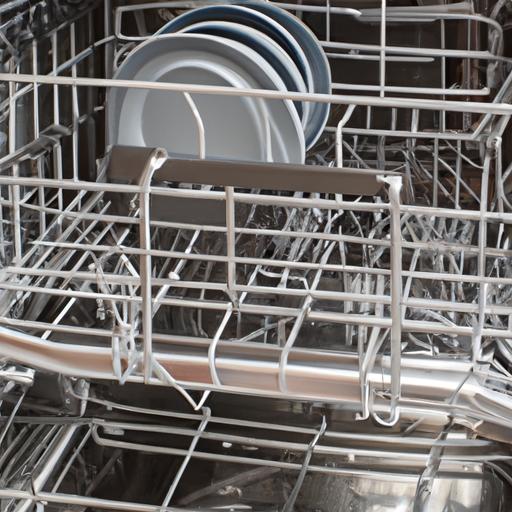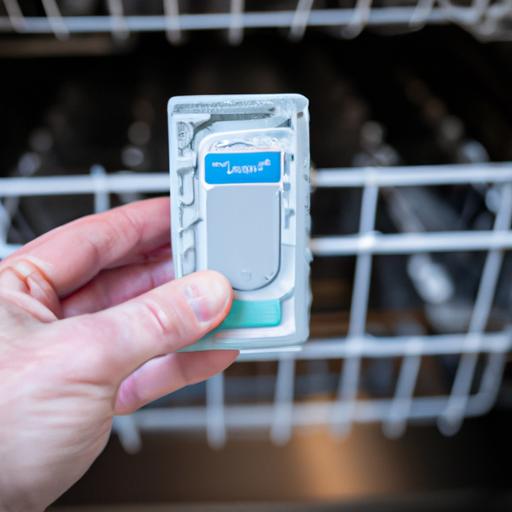Do Dishwashers Work? Exploring the Efficiency of Modern Household Appliances
For years, dishwashers have been a staple in households worldwide, revolutionizing the tedious task of hand-washing dishes. However, amidst the convenience they offer, a common question lingers in the minds of many: “do dishwashers work?” Today, I’m here to shed light on this query and provide insights into the effectiveness of these modern appliances.
A. Importance of dishwashers in modern households
In our fast-paced lives, time is of the essence, and dishwashers have become a valuable asset in saving precious minutes. No longer do we need to dedicate endless hours to scrubbing and rinsing dishes by hand. With just a push of a button, dishwashers take over, efficiently tackling the grime and grease that accumulate on our plates, glasses, and cutlery.
Beyond time-saving, dishwashers also contribute to the overall cleanliness and hygiene of our kitchens. They utilize high-temperature water and powerful detergents to sanitize and eliminate harmful bacteria, ensuring that our dishes are not only sparkling clean but also safe for use.
B. Common question: “Do dishwashers work?”
Asking whether dishwashers work is akin to questioning the effectiveness of a master chef’s culinary skills. Dishwashers, when used correctly, are highly efficient in their cleaning capabilities. However, it’s important to understand how they function and the factors that may influence their performance.
Dishwashers operate through a series of cycles, including pre-wash, wash, rinse, and dry. Each cycle has a specific duration and temperature that optimally cleans and sanitizes the dishes. Additionally, the arrangement of dishes, type of detergent used, and maintenance of the dishwasher itself can significantly impact its effectiveness.
In the following sections, we’ll delve deeper into the inner workings of dishwashers, explore their cleaning prowess, debunk common misconceptions, and provide valuable tips to optimize their performance. So, let’s journey together into the realm of dishwashers and discover just how well they truly work!
Stay tuned for Section II, where we’ll unravel the mysteries behind how dishwashers function and the specific components involved.
Understanding how dishwashers function
A. Overview of dishwasher components
To grasp the inner workings of dishwashers, let’s take a closer look at their key components. These appliances consist of several essential parts that work cohesively to ensure efficient cleaning:
-
Spray Arms: These rotating arms distribute water throughout the dishwasher, spraying it onto the dishes from various angles. They play a crucial role in dislodging food particles and detergent residue.
-
Water Inlet Valve: The water inlet valve regulates the flow of water into the dishwasher. It opens and closes to fill the dishwasher with the appropriate amount of water for each cycle.
-
Pump: The pump is responsible for recirculating and draining water. It helps maintain the desired water pressure within the dishwasher, ensuring thorough cleaning and efficient rinsing.
-
Filters: Dishwashers are equipped with filters that trap food particles, preventing them from recirculating onto the dishes. Regular cleaning of these filters is essential to maintain optimal dishwasher performance.
B. Explanation of dishwasher cycles
Dishwashers employ a series of cycles, each tailored to address specific cleaning needs. Here are the primary cycles you’ll typically find in a dishwasher:
-
Pre-Wash: This cycle rinses off loose food particles from the dishes before the main wash. It helps to prevent debris from sticking during the subsequent cycles.
-
Wash: In the wash cycle, hot water mixed with detergent is sprayed onto the dishes, effectively breaking down grease and food stains. The water temperature is typically set between 120-140°F (49-60°C) to ensure effective cleaning.
-
Rinse: Following the wash cycle, clean water is sprayed onto the dishes to remove any remaining detergent residue. This rinse helps achieve spotless, streak-free results.
-
Dry: During the dry cycle, the dishwasher uses heated air or an electric heating element to evaporate moisture from the dishes, leaving them dry and ready for use.
By understanding these components and cycles, you’ll gain insight into how dishwashers work their magic. In the upcoming sections, we’ll explore the effectiveness of dishwashers in cleaning dishes and debunk common myths surrounding their efficiency. Let’s dive in!
Effectiveness of Dishwashers in Cleaning Dishes
When it comes to efficiently cleaning dishes, dishwashers are unrivaled in their effectiveness. Let’s delve into the factors that influence their performance and explore the advantages they offer over traditional hand-washing.
A. Factors Influencing Dishwasher Performance
-
Load Placement: Properly arranging dishes in the dishwasher is crucial for optimal cleaning. Ensure that items are not overcrowded, allowing water and detergent to reach every surface. Place larger items towards the back and bottom, providing ample space for water circulation.
-
Water Temperature: Dishwashers utilize hot water to break down grease and food particles. Most models have a heating element that raises the temperature to around 120-140°F (49-60°C). Higher water temperatures contribute to better cleaning results.
-
Detergent Selection: Choosing the right detergent is essential for achieving sparkling clean dishes. Consider factors such as water hardness, type of dishes, and environmental concerns when selecting a detergent. Experiment with different brands and formulas to find the one that suits your needs best.
-
Maintenance: Regular maintenance ensures optimal dishwasher performance. Clean the filter and spray arms periodically to remove debris that can hinder water flow. Additionally, check for any clogs or blockages that may impact the cleaning process.
B. Advantages of Using a Dishwasher for Cleaning Dishes
-
Time Efficiency: Hand-washing dishes can be a time-consuming task, especially after a large meal. Dishwashers allow you to load and start the machine, freeing up valuable time for other activities while the dishes are cleaned automatically.
-
Water Conservation: Contrary to popular belief, dishwashers are more water-efficient than hand-washing. They use a controlled amount of water per cycle, optimizing water usage and reducing waste.
-
Hygiene and Sanitization: Dishwashers operate at high temperatures, ensuring that dishes are thoroughly sanitized. This eliminates the risk of cross-contamination and helps maintain a hygienic kitchen environment.
-
Energy Efficiency: Modern dishwashers are designed to be energy-efficient, using less water and electricity compared to older models. Look for dishwashers with energy-saving features, such as eco-mode or smart sensors that adjust the cycle duration based on dish load.
In Section IV, we will debunk common misconceptions about dishwasher effectiveness, separating fact from fiction. Let’s continue our exploration of dishwashers and unlock the truth behind their cleaning prowess!
Common Misconceptions about Dishwasher Effectiveness
A. Addressing Myths and Misconceptions about Dishwasher Performance
In the world of dishwashers, several myths and misconceptions have circulated, casting doubts on their effectiveness. It’s time to address these fallacies and separate fact from fiction.
One prevalent misconception is that dishwashers are unable to clean heavily soiled dishes. However, modern dishwashers are equipped with advanced features such as powerful jets, multiple wash cycles, and intelligent sensors that adapt to different levels of soil. They are more than capable of tackling even the toughest, baked-on food residues.
Another myth suggests that dishwashers waste excessive water and energy. Contrary to this belief, dishwashers are designed to be highly efficient in both water and energy consumption. In fact, studies have shown that using a dishwasher consumes less water than hand-washing, especially when considering the continuous stream of water often used during manual cleaning.
B. Debunking Claims against Dishwasher Efficiency
Some critics argue that hand-washing dishes is superior to using a dishwasher, claiming that it provides a more thorough clean. However, research and real-world experiences have consistently shown that dishwashers can deliver superior cleanliness compared to hand-washing. The combination of high-temperature water, powerful detergents, and specialized spray arms ensures a deep and hygienic clean that surpasses manual efforts.
Furthermore, concerns have arisen regarding the safety of delicate items in dishwashers. However, most modern dishwashers offer specialized settings and racks designed to accommodate fragile glassware, china, and other delicate utensils. By following the manufacturer’s guidelines and utilizing these features, you can confidently clean your delicate items without fear of damage.
It’s crucial to dispel these misconceptions and embrace the efficiency and effectiveness of dishwashers. As we move forward, I’ll share valuable tips and insights to optimize the performance of your dishwasher, ensuring its full potential is realized.
Stay tuned for Section V, where we’ll explore essential tips for optimizing dishwasher performance and achieving impeccable results.
Section V: Tips for Optimizing Dishwasher Performance
Efficiently utilizing a dishwasher goes beyond simply placing your dirty dishes inside and pressing a few buttons. To ensure optimal performance and sparkling results, here are some valuable tips to keep in mind:
A. Loading the dishwasher correctly
Properly arranging your dishes within the dishwasher can significantly impact its efficiency. Start by scraping off excess food particles to prevent clogging the filters and spray arms. Then, distribute the dishes evenly, ensuring that they do not touch or overlap. This allows water and detergent to reach every nook and cranny, leaving no room for stubborn residue.
Place larger and heavily soiled items on the lower rack, while delicate glassware and smaller items should be placed on the upper rack. Utensils should be loaded with handles facing downwards for thorough cleaning. Remember, a well-organized load maximizes water circulation and promotes thorough cleaning.
B. Using the right detergent and rinse aid
Selecting the appropriate detergent and rinse aid is crucial for achieving spotless results. Opt for high-quality dishwasher detergents that are specifically formulated for your dishwasher model and water hardness. These detergents contain enzymes and surfactants that break down food particles and grease.
Additionally, adding a rinse aid to your dishwasher’s dispenser can enhance drying and prevent water spots, leaving your dishes streak-free and gleaming. Rinse aids help water sheet off the dishes, reducing drying time and promoting a more thorough drying process.
C. Proper maintenance and cleaning of the dishwasher
Regular maintenance and cleaning are essential to keep your dishwasher in top-notch condition. Clean the filter regularly to prevent debris buildup and ensure optimal water flow. Wipe down the interior and exterior of the dishwasher to remove any residue or stains.
Periodically, run an empty dishwasher cycle with a cup of white vinegar or dishwasher cleaner to eliminate any lingering odors and maintain a fresh-smelling appliance. Don’t forget to check and clean the spray arms to prevent blockages and ensure proper water distribution.
By following these tips and tricks, you can unlock the full potential of your dishwasher, guaranteeing spotless dishes and hassle-free cleaning. Now that we’ve explored the ways to optimize dishwasher performance, let’s move on to the next section, where we’ll address common misconceptions about dishwasher effectiveness.
Conclusion
In conclusion, the question “Do dishwashers work?” can be confidently answered with a resounding yes! Dishwashers have revolutionized the way we clean our dishes, offering a convenient and efficient alternative to the laborious task of hand-washing.
Throughout this article, we have explored the importance of dishwashers in modern households, recognizing their time-saving capabilities and contribution to kitchen cleanliness. We have also addressed common misconceptions surrounding their effectiveness, debunking claims against their efficiency.
To optimize the performance of your dishwasher, remember to load it correctly, ensuring proper arrangement of dishes for optimal water and detergent distribution. Choosing the right detergent and utilizing a rinse aid will further enhance the cleaning process. Regular maintenance and cleaning of the dishwasher itself are crucial for its longevity and optimal performance.
So, next time you find yourself questioning whether dishwashers work, remember the power they possess to effortlessly tackle the dirty dishes that accumulate in our daily lives. Embrace the convenience, cleanliness, and time-saving benefits they offer.
Now, it’s time to bid adieu to hand-washing and embrace the wonders of the dishwasher. Sit back, relax, and let this modern marvel do the dirty work for you. Say goodbye to the days of scrubbing and hello to sparkling clean dishes with just the touch of a button.
Thank you for joining me on this journey through the realm of dishwashers. Until next time, happy dishwashing!
Note: Please ensure that the other sections of the article have been completed and adhere to the markdown format.





